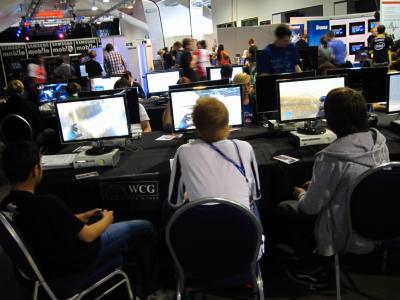There is a belief that online social behavior related to video gaming replaces real life but scholars found that is not so; instead of making the social circle smaller, it expands the social lives of gamers.
The authors traveled to more than 20 public gaming events in Canada and the United Kingdom, from 2,500-player events held in convention centers to 20-player events held in bars. The researchers observed the behavior of thousands of players, and had 378 players take a survey, with a focus on players of massively multiplayer online role-playing games such as EVE Online and World of Warcraft.
They were interested in tracking the online and offline behavior of gamers, focusing on how they communicated with each other. They found that gaming was only one aspect of social behavior at the gaming events.
"Gamers aren't the antisocial basement-dwellers we see in pop culture stereotypes, they're highly social people," says Dr. Nick Taylor, an assistant professor of communication at NC State and lead author of the paper. "This won't be a surprise to the gaming community, but it's worth telling everyone else. Loners are the outliers in gaming, not the norm. We found that gamers were often exhibiting many social behaviors at once: watching games, talking, drinking, and chatting online. Gaming didn't eliminate social interaction, it supplemented it.

A new paper says that nline gaming is augmenting, not limiting, the social lives of players. Credit: Nick Taylor
"This was true regardless of which games players were playing, and whether a player's behavior in the online game was altruistic. For example, a player could be utterly ruthless in the game and still socialize normally offline."
The researchers also found that gamers didn't distinguish between the time they spent playing games and the time they spent watching other people play games.
"It all fell under the category of gaming, which they view as a social activity," Taylor says.
Taylor notes that this work focused on Western gaming communities, and he's interested in studying the relationship between social behaviors and gaming in other cultures.






Comments